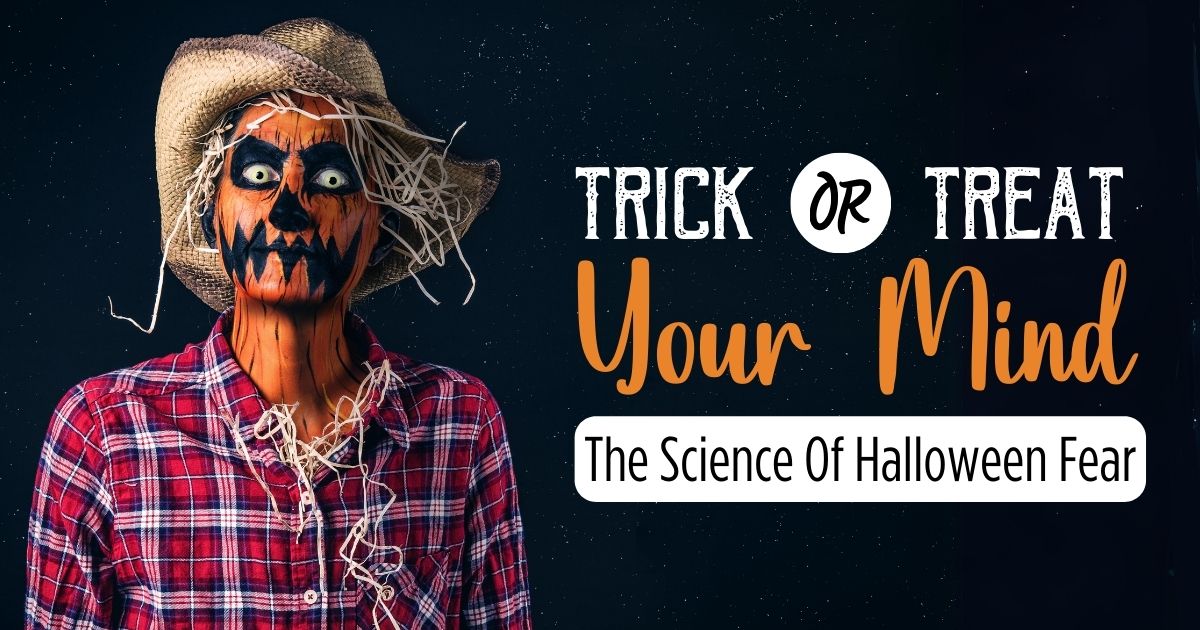Halloween is a time of year when we willingly expose ourselves to fright and horror. But what drives our fascination with fear during Halloween? Evolutionary psychology can provide some intriguing insights into why we derive pleasure from experiencing fear.
The Evolution Of Fear During Halloween
To understand why we enjoy fear, it is essential to recognize the evolutionary significance of this emotion. Fear, as an emotion, has evolved as a crucial survival mechanism. Throughout our evolutionary history, the ability to recognize and react to threats played a vital role in ensuring our survival. Fear, in this context, heightened our senses, triggered the fight-or-flight response, and enabled us to escape from dangerous situations.
This adaptive response is still deeply ingrained in our brains. When we encounter something frightening, our bodies release adrenaline, our heart rate increases, and our senses sharpen. These physical responses are a testament to our evolutionary heritage, as they prepare us to face potentially life-threatening situations.
Safe Fear And Thrills
In the modern world, many of us rarely face life-threatening situations, which means we often have to find alternative ways to experience the thrill and arousal that fear can provide. Halloween, with its haunted houses, scary costumes, and horror-themed attractions, offers a controlled and safe environment for people to indulge in fear. This safe fear allows us to tap into the exhilarating aspects of our evolutionary response without actual danger.
Haunted Houses And Fear Simulation
Haunted houses are a prime example of how we can safely experience fear on Halloween. These attractions are carefully designed to evoke fear through a series of well-planned scares and disturbing scenes. Visitors enter these houses knowing that they will be frightened, yet they willingly embrace the experience.
One reason haunted houses are so popular is that they provide a unique form of fear simulation. Within the confines of a haunted house, individuals can temporarily suspend their disbelief, allowing their imagination to run wild. This suspension of disbelief amplifies the fear response, making the experience even more intense and satisfying. People are drawn to the thrill of being startled, the excitement of anticipating the next scare, and the satisfaction of conquering their fears.
Psychological Release
The enjoyment of fear during Halloween can also be attributed to the psychological release it offers. Leading up to this holiday, individuals often face daily stressors, anxieties, and other negative emotions. Halloween serves as an outlet for releasing pent-up tension and stress. Engaging in frightening experiences can provide a cathartic release, allowing individuals to temporarily forget their worries and anxieties as they immerse themselves in the world of the unknown.
Shared Experiences Of Fear During Halloween
Another crucial aspect of the enjoyment of fear during Halloween is the social component. Humans are inherently social beings, and many of our emotions and experiences are heightened when shared with others. Experiencing fear with friends and family members can strengthen social bonds and create lasting memories. The collective laughter, screams, and discussions about the experience afterward add to the overall enjoyment of the event.
Coping With Fear During Halloween
The pleasure derived from being frightened on Halloween can also be attributed to the way fear challenges our coping mechanisms. While the fear we experience during Halloween is not genuinely life-threatening, it does push our psychological and emotional boundaries. Confronting fear in a controlled environment helps build resilience and enhances our ability to cope with real-life stressors. Overcoming these fears can be empowering and boost our self-esteem.
Catharsis Through Horror Movies
Horror movies play a significant role in our enjoyment of fear during Halloween. These films tap into our primal fears and allow us to experience terror from the safety of our living rooms or cinema seats.
The narrative structure of horror films often follows a pattern of tension, release, and resolution, providing viewers with a sense of catharsis. The tension builds as the story unfolds, reaches its peak in terrifying moments, and ultimately releases through a resolution or conclusion.
This cathartic experience, similar to that of a roller coaster, can be highly satisfying. We find pleasure in the emotional rollercoaster that horror movies provide, as we are taken on a journey from fear to relief. The rush of adrenaline and the subsequent sense of relief can be addictive, making horror movies a popular choice for those seeking thrills and chills during Halloween.
Evolutionary Roots Of Fear During Halloween
To understand why we enjoy fear during Halloween, we need to consider the evolutionary roots of this phenomenon. Our ancestors faced real and constant threats in their environment, such as predators, natural disasters, and rival tribes. The ability to recognize and react to fear-inducing situations was crucial for survival. Those who were more vigilant and cautious were more likely to escape danger and pass on their genes.
In this context, our brains evolved to pay close attention to stimuli that could potentially signal danger. Our ancestors who were curious and attentive had a better chance of detecting threats early, even if the majority of these perceived threats turned out to be harmless. This evolutionary history has left us with a brain that is sensitive to novelty and potential danger, making us naturally drawn to situations and experiences that evoke fear.
Moreover, the thrill of fear can be seen as an extension of our ancestors’ willingness to take risks and explore the unknown. Early humans who were curious and willing to venture into unfamiliar territories may have discovered new food sources or safer shelter. This adventurous spirit likely had a genetic advantage, as it contributed to their survival and the success of their offspring. Our fascination with the unknown, including fear-inducing experiences, can be seen as an echo of this evolutionary trait.


























